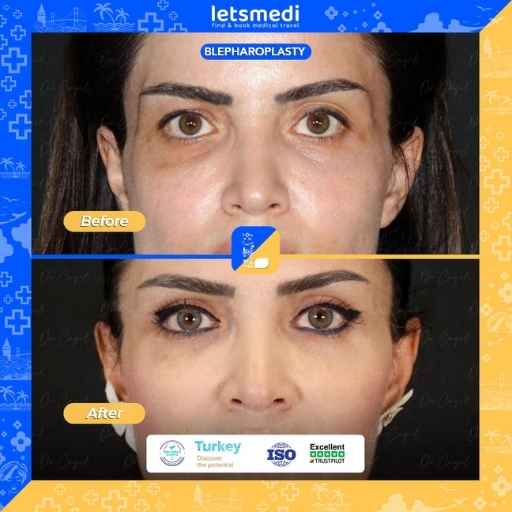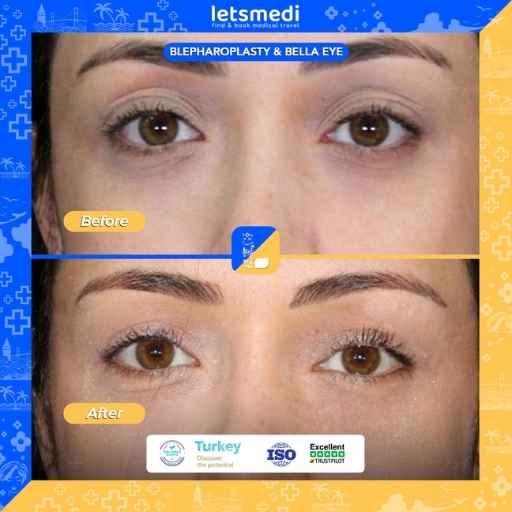During a blepharoplasty, a surgeon removes excess skin and fat from the upper and lower eyelids. The procedure can correct droopy eyes. The incisions are made below the lashes and near the temples. The incisions are closed with fine sutures.
Blepharoplasty can be performed in an outpatient setting. In this case, you can be taken to the surgery center and back home by a friend or family member. The procedure is generally done in a matter of hours. However, a patient’s swelling and bruising will last for a week or two.


GET FREE CONSULTATION
Table of Contents
How is the healing process?
Having blepharoplasty surgery is an easy procedure and usually doesn’t cause any pain. The recovery process can take a few days, but most patients are ready to return to work or school after two weeks. However, each patient’s recovery is unique and may take longer.
The best way to accelerate the healing process is to follow the surgeon’s instructions regarding incision care. These can help to minimize scarring, while promoting healing.
During the first few days after blepharoplasty, your eyes will feel swollen and itchy. Use ice compresses to soothe these symptoms. Place the compresses on your eyelids for 20 minutes. After that, they can be removed.
Swelling and bruising could pass by within a few days. You can also use over-the-counter pain relievers.
What are the Blepharoplasty Risks?
Before having blepharoplasty, you should inform your care provider about your medical history. This includes any other surgeries or ocular conditions you may have. You should also discuss any medications you take.
You should expect to experience some mild swelling and bruising after blepharoplasty. This will usually lessen after 10 to 14 days. You can use cool compresses to relieve some of the short-term discomfort. You should avoid strenuous activities for a week.
You should also tell your care provider about any medications, herbal supplements, or alcohol you are taking. These could increase the risk of bleeding during the procedure.
Why should you choose Turkey for a Blepharoplasty?
Choosing Turkey for blepharoplasty surgery is a great choice for patients looking for a low cost and high quality procedure. Turkey has many medical facilities, and is well known for its expertise in plastic and cosmetic procedures.
Surgeons in Turkey undergo regular training. In addition, they make sure that they have the necessary experience before working in private clinics. Turkey is also the number one representative of medical tourism.
Our Clinic in Istanbul, Turkey
Why is Blepharoplasty cheaper in Turkey?
The cost of blepharoplasty in Turkey can range from $1,500 to $3,000. It depends on the type of procedure, and also on the clinic or hospital.
One of the reasons why it is cheap is the dollar exchange rate, the value of the lira in Turkey, which is experiencing economic problems, is falling day by day.
How much does a Blepharoplasty cost in Turkey?
The average cost of blepharoplasty in Turkey is between $1,500 and $3,000. The price is often lower than the cost of the same procedure in Europe.
Of course, this price is directly related to the clinic you choose. Although the amounts you will pay to a clinic in Istanbul and a clinic in Izmir are different, the price in Antalya is very different. Do not forget to contact the clinics before planning your trip.
Blepharoplasty Cost in Turkey vs UK
Getting a blepharoplasty in Turkey can be a great option for international patients who are looking for affordable options.
In the UK you will expect to pay around 7000 $ to 8000$ and of course that price depends on the clinic you choose.
The cost of blepharoplasty in Turkey varies depending on the type of surgery performed and the hospital where it is performed. The average cost is about 1500 US dollars in Istanbul.









